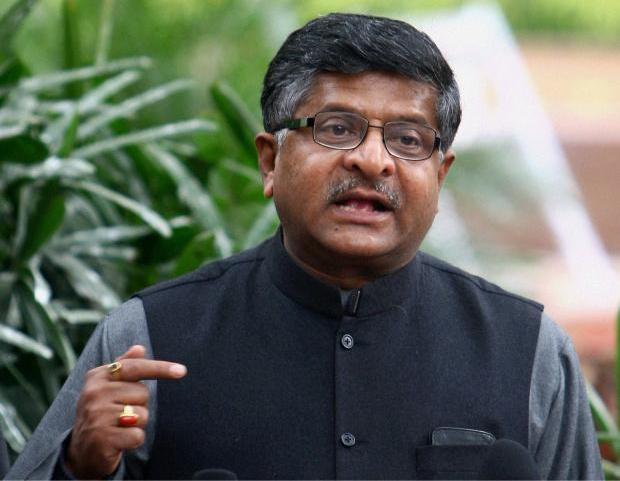
As part of a major reshuffle of the Union ministers, Ravi Shankar Prasad will be removed as India’s telecom minister.
Railways minister Manoj Sinha will be the new telecom minister of India. Telecom portfolio will be an additional responsibility for Manoj Sinha. Manoj Sinha will hold the communications portfolio too as minister of State (Independent Charge).
In addition to Law & Justice, Ravi Shankar Prasad will be handling Electronics and Information Technology portfolios.
Venkaiah Naidu will be the new Information and Broadcasting minister. While Ravi Shankar Prasad was divested of telecommunications but given law, Venkaiah Naidu received additional charge of the I&B ministry.
Arun Jaitley, who held additional charge of the Information and Broadcasting ministry, divests it to Venkaiah Naidu. While Naidu will retains his existing Urban Development and Housing portfolio and will be responsible for smart city projects.
The removal of Ravi Shankar Prasad as the telecom minister is happening at a time when the Indian government is trying to sell spectrum worth $83 billion in the next 2-3 months. Recent analyst reports suggest that there will be poor response from mobile industry stakeholders for the spectrum auction, and bids worth $12 billion to $15 billion will be received during the spectrum auction. The poor response is despite the fact that the Government is trying to sell higher quantities of spectrum.
Sources earlier indicated that the Narendra Modi-run BJP government will remove under-performers. Many in the telecom business believe that Ravi Shankar Prasad did not make any significant achievement for the Indian telecom industry in the last two years.
The exit of Ravi Shankar Prasad, who had the cabinet rank, from the telecom ministry and the appointment of state minister with independent charge to look after the vital telecom portfolio indicates that the BJP government is giving relatively less importance to the communication sector. Incidentally, Manoj Sinha will be handling two important portfolios — Railways and Communications — as the state minister.
During the tenure of Ravi Shankar Prasad, the India government could not take any decisive action on call drop issue despite the fact the prime minister Narendra Modi himself recommended strong actions to reduce call drops across the country. The telecom ministry could not assist mobile industry to deploy adequate base stations because of state level guidelines and court issues.
At a time when countries such as Korea, Japan, the US and UK are already in the process of making progress in 5G regulation, India is far behind in making 5G a successful business for telecoms. Telecom network operators are already complaining about their huge debt — especially after making huge investment in spectrum to run 3G and 4G networks.
TRAI says the wireless data usage grew 58 percent from 285431 Terabytes (TB) in the quarter ending March, 2015 to 451185 TB in quarter-ending March 2016. The subscriber base, which used wireless Internet, has grown 16 percent from 27.04 crore as on 31.03.2105 to 31.35 crore as on 31.03.2106. Lack of cost effective spectrum is impacting the business of telecom network operators in India.
The country is currently in the process of taking decisions on regulatory guidelines for VoIP, OTT and Net neutrality that impact 900 million plus mobile subscribers.





